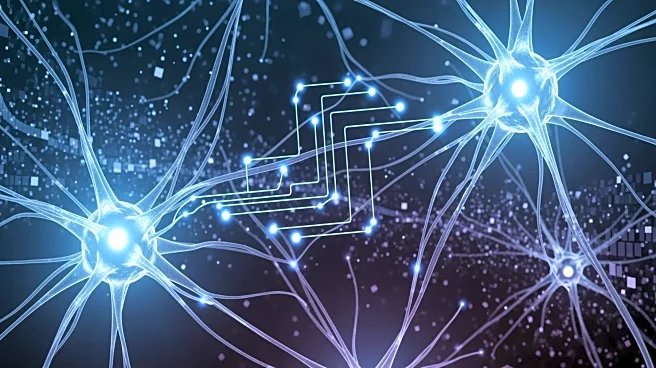What's Happening?
Andrej Karpathy, a cofounder of OpenAI, has recently critiqued the concept of 'vibe coding,' a term he popularized to describe the use of AI tools for coding projects. Despite initially advocating for this
approach, Karpathy admitted that he had to write the code for his latest project, nanochat, by hand due to the inadequacies of AI tools. Nanochat is an open-source model designed to allow users to build a large language model with a chatbot interface quickly and affordably. Karpathy's experience highlights the limitations of AI coding tools, which he found unhelpful for complex tasks. This revelation contrasts with his previous endorsement of 'vibe coding' for simpler projects, where he would rely on AI-generated code without thoroughly reviewing it.
Why It's Important?
Karpathy's critique of 'vibe coding' underscores the challenges faced by developers relying on AI tools for coding. His experience suggests that while AI can assist in coding, it may not be suitable for more complex projects, potentially leading to inefficiencies. This insight is significant for the tech industry, as it highlights the need for human oversight and expertise in AI-driven development. Companies may need to reconsider their reliance on AI tools and invest in human specialists to address coding errors. The broader implication is a potential shift in how AI is integrated into software development, balancing automation with human intervention.
What's Next?
The tech industry may see increased scrutiny of AI coding tools and their effectiveness. Developers and companies might explore hybrid approaches that combine AI assistance with human expertise to optimize coding processes. There could be a push for improved AI tools that can handle complex coding tasks more effectively. Additionally, Karpathy's insights might influence future AI development strategies, emphasizing the importance of human oversight in AI-driven projects.
Beyond the Headlines
Karpathy's experience with 'vibe coding' raises ethical questions about the reliance on AI in software development. It challenges the notion that AI can fully replace human input, highlighting the importance of human creativity and problem-solving skills. This development may prompt discussions on the ethical use of AI in coding and the potential risks of over-reliance on automated systems.










